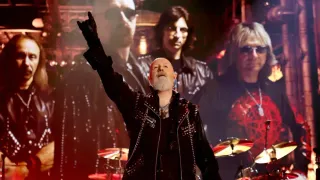February 13, 2016
Guests in the Symphony Hall
Philip Campbell READ TIME: 3 MIN.
The carousel of guest conductors continues spinning in Davies Symphony Hall as a trio of guest artists finished visits with the San Francisco Symphony last week.
The first in that lineup actually appeared at the end of January leading a touring ensemble, London's Royal Philharmonic Orchestra, but violinist-conductor Pinchas Zukerman returns this Thursday and again on Sunday, Valentine's Day, to direct the SFS in performances of Mozart and Edward Elgar.
The RPO performance we attended added Beethoven to a bill that also featured Mozart and Elgar. The British orchestra filled the DSH stage with divided strings and a bold horn section to make a strong impression with the thoroughly English Enigma Variations, Beethoven's Overture to Egmont, and Mozart's Violin Concerto No. 5, Turkish . It was pleasing to note the young median age and equality of male and female RPO players. The sound they produce is thrilling at full-throttle, and was in congenial synch with Zukerman - at least when he was focusing solely on them.
They fared less well supporting the famed violinist in the Concerto. Zukerman has always possessed a strong and sweet tone, and his technical brilliance remains undimmed, but he wasn't able to keep the musicians fully alert as he coursed through the charming Mozart score. The real treat was hearing a sensitive interpretation of Enigma, especially the ravishing Nimrod variation.
The SFS followed later in the week with subscription concerts conducted by Edwin Outwater featuring pianist Stephen Hough in a program called European Exoticism. Outwater is a familiar favorite at DSH. Currently Music Director of Ontario's Kitchener-Waterloo Symphony and Director of Summer Concerts at the SFS, he has also served as Resident Conductor and as Music Director of the SFS Youth Orchestra. Outwater's bill was refreshing, with offbeat selections that offered plenty of excitement and lots of chances for bravura playing.
Hough's delivery of the Saint-Saens Piano Concerto No. 5, Egyptian, squashed debate about the relative artistic worth of the piece and justified his obvious affection. The French composer was a master of lean orchestration, and his melodic gift was given lilting expression by the orchestra. Hough has proven his advocacy on disc (delightful listening), and his live demonstration was dazzling. He doesn't need a big or overly familiar showpiece to excite an audience. Even his encore on the night we attended, an obscure but lovely morsel by Frederic Mompou, was perfect for the occasion.
Outwater framed Hough's appearance with Weber's Overture to Oberon, and on the second half featured the first SFS performances of Ferruccio Busoni's Music from Turandot Suite and Paul Hindemith's Symphonic Metamorphosis of Themes by Weber. The tuneful and magically evocative Busoni turned out to be much more than a mere curiosity, and the happy crowd responded with enthusiasm. The energetic conductor sealed the deal with his blazing joy-ride through the exhilarating Hindemith piece.
Last week, Masaaki Suzuki, founder of the Bach Collegium Japan in 1990, made his SFS conducting debut with a program touted as a grand tour of Europe, guided by composers Haydn, Mozart, Stravinsky and Mendelssohn. The highlight of the night was SFS Principal Bassoon (since 1977) Stephen Paulson's richly satisfying rendition of Mozart's Concerto in B-flat major, K. 191.
Paulson's long and illustrious tenure with the orchestra makes him instantly recognizable to regulars, and his entrance received a warm and appreciative ovation. The dexterity of his playing brought everyone to their feet at the end. His performance brightened Suzuki's debut, and another longtime SFS member, Peter Wyrick, Associate Principal Cello since 1999, helped as well, enlivening Haydn's Symphony No. 95 with his fine solo work.
Mendelssohn's Symphony No. 4, Italian, is fairly irresistible, and the conductor paced it well enough, even if the orchestral response was a little muddy. It was an efficient but uninspiring interpretation.
Suzuki was at his best in the more translucent Stravinsky Concerto in D major for String Orchestra. Brief and bracing, the work puts in a nutshell the composer's late neoclassical style. With his strong background in the sparer instrumentation of Bach, it came as no surprise that Suzuki made a good case for the elegant score.
After Pinchas Zukerman's return to the podium this week, more guest conductors are queuing up for the revolving door at Davies. Stephane Deneve brings excerpts from Prokofiev's Cinderella and Nielsen's Violin Concerto with soloist Nikolaj Znaider mid-month.
Herbert Blomstedt, Conductor Laureate of the SFS and Music Director from 1985 to 1995, is coming back later to present a signature work, Bruckner's Symphony No. 3. Fabulous soloist Maria Joao Pires will play the Beethoven Piano Concerto No. 3. In early March, Blomstedt presents an all-Mozart bill that features SFS Concertmaster Alexander Barantschik in the Violin Concerto No. 1.






